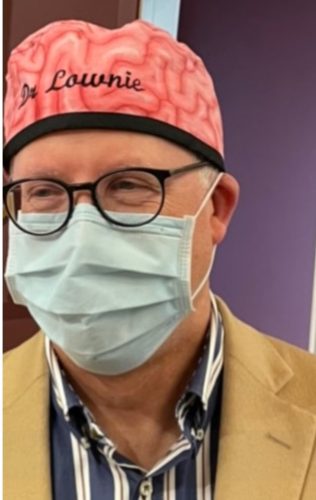Last month, Health Minister Michelle Thompson announced that the Nova Scotia government signed a $365-million, 10-year contract to bring electronic healthcare records to the province.
The system is slated to begin a staged rollout within two years, with an initial computer portal ready in 10 months, according to Thomspon.
Dr. Stephen Lownie, a neurosurgeon with Halifax's QEII Health Sciences Infirmary, said the One Person One Record system, or the Electronic Health Record (EHR), system is an amalgamation of all of the aspects of hospital and health care that can be put into a single platform.
"It's the biggest thing since the MRI in the late 80s, and this is the biggest single change that many people in healthcare will see in their careers since the past 30 to 40 years," said Lownie.

Dr. Stephen Lownie is a neurosurgeon with Halifax's QEII Health Sciences Infirmary. He worked for 30 years in an Ontario hospital before returning to Nova Scotia. Photo contributed.
The new platform will allow patients and doctors to have access to imaging studies, MRI, CT scans, transcriptions, physician reports, laboratory reports, patient demographic information, blood test reports, and more services, according to Lownie.
"I think Nova Scotia is one of the last to bring this type of EHR system into healthcare," he said.
Digitizing healthcare records will protect files from being lost or misplaced, and will make it easier for healthcare workers to look into a patient's historical data.
"By keeping the information in a digital format, it's more quickly accessible, and more comprehensive, because it hasn't been, for example, put in a chart and then sent to another location. Also, digitization allows a more rapid exchange of information than analog paper," said Lownie.
Another aspect the system provides apart from efficiency is safety.
"It isn't common, but there are medication errors that can occur when a person receives a prescription. That may be where the dose might be incorrect, or the name of the drug might be incorrect. Sometimes, in a large hospital system, a patient might receive a medication that was destined for another person. These types of things are called medication errors," explained Lownie.
While he said these events are rare in the field, introducing the electronic health record will decrease those types of medication errors by anywhere from 30 to 50 per cent.
Listen to the full CKDU interview below:


